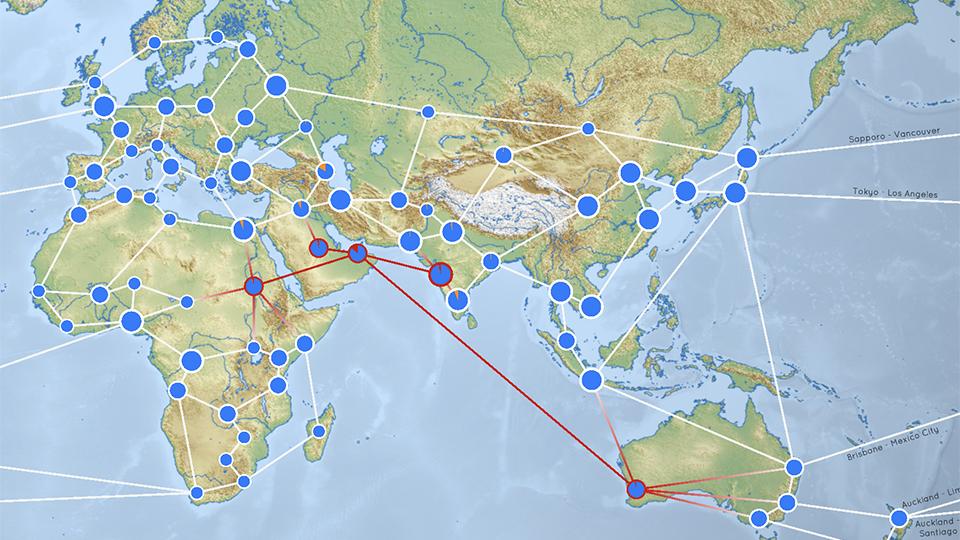Fight pandemic with virtual vaccine in new computer game
Primary page content
A free online game developed by a Goldsmiths, University of London MSc student led by senior researchers at the University of Oxford helps the public to understand how vaccines work on a global scale.

The Vaccination Game, which launched this month, challenges players to figure out how they can deploy limited doses of a vaccine to best control a disease modelled on influenza.
A virtual vaccine in the game is available in limited doses per week and the player has to decide who to vaccinate in each of the 99 cities worldwide that are part of the game. At the end of the campaign, the player receives a report as to how well they played the game and how many lives were saved by the vaccine.
The idea of developing a game was conceived by Professor Hal Drakesmith and colleagues at the MRC Weatherall Institute of Molecular Medicine in Oxford (MRC WIMM), who are part of a research network focussing on immunising babies and mothers to fight infections in low and middle-income countries. Following funding from, and in collaboration with the IMPRINT research network, they were able to begin development of the game in 2019.
Goldsmiths MSc student Giacomo Mazza took a summer work placement to work on coding for The Vaccination Game with the Analysis, Visualisation and Informatics group at Oxford which is led by Steve Taylor and based at MRC WIMM.
The placement was set up by Professor William Latham and Professor Frederic Fol Leymarie from Goldsmiths’ Department of Computing who have previously collaborated with Taylor and MRC WIMM on a number of DNA / RNA visualisation tools and scientific papers, including a recent VR 3D visualisation of Covid-19 with the University of York.
Managed by Richard Leinfellner, lecturer on the MSc Computer Games Programming at Goldsmiths, Giacomo has helped to produce a final version of the game based on mathematical models of how a virus spreads, and what effect a vaccine might have.
Professor Drakesmith said: “Our game isn’t intended as a modelling or simulation tool, or meant to predict real-world scenarios. Instead, we hope it’s educational, as it illustrates how vaccines can work on a global scale, and shows that precisely how a vaccine is deployed across populations can be crucial to its effectiveness.”
Giacomo said: “The Vaccination Game is one more step forward towards bridging the gap between games and education using gamification. I hope players will have fun while learning the importance of vaccination!"
The Vaccination Game can be played online here: https://bit.ly/3d5dwh0